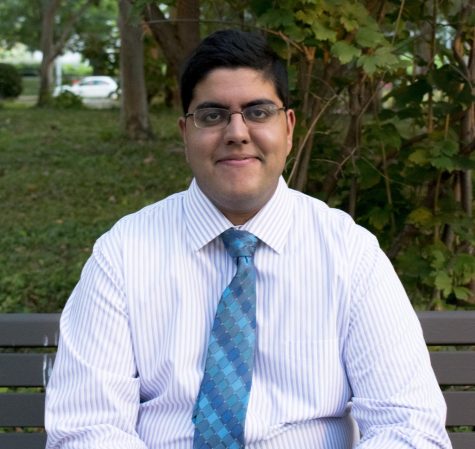Despite friction, USG, UDC see unity ahead
November 18, 2016
In The Observer on Nov. 4, two USG representatives wrote a letter to the editor calling for the dissolution of the Undergraduate Diversity Collaborative (UDC). This letter triggered several responses from various student organizations in the weeks that followed. However, despite the opposing views multiple these letters presented and the need for a clarifying statement in the Undergraduate Student Government (USG) weekly newsletter, both USG and UDC look forward to collaborative work.
A statement in USG’s weekly newsletter published Nov. 11 stated that the letter did not represent the opinion of USG. USG President and Chair of USG’s Diversity and Inclusion Ad Hoc Committee, Brian Ward, also stated this stance.
The UDC was formed at the end of the spring in 2015 through a university-wide referendum, and it functioned without an allocation during the fall of 2015. It is currently in the middle of its second semester with funding, with the first being the spring of 2016.
Since the letter by the two USG representatives was published, several organizations have voiced their opinions. Responses to this letter from a member of UDC and the UDC itself were printed in the Nov. 11 issue of The Observer. Additionally, the University Media Board (UMB) had a response in the Nov. 11 issue in support of the UDC. This letter was signed by all organizations under the UMB except for The Observer. A letter to the editor by the African American Society and the African Students Association was published in the Nov. 18 issue in support of the UDC.
“I think, across the board, there’s a perception that there’s a conflict between UDC and USG,” said Ward. “When it comes down to it, we have the same goal of improving the CWRU experience for undergraduates.… It’s important to make sure resources aren’t being duplicated and we aren’t stepping on each other’s toes. But, I think, at the end of the day, both organizations have good intentions.”
Both UDC President Lilly Tesfai and Vice-President Akinola Akinbote said they believed that USG’s structure of academic caucuses and UDC’s structure, made up of the groups that fall under them, meant that participation in one cannot automatically negate participation in the other. Ward expressed hope that groups could be part of both umbrellas in the future, were USG’s structure to change.
“If I have someone on my committee that I have assigned to focus on diversity in curriculum, they are going to be the point person for the USG Academic Affairs Committee,” said Tesfai, with regard to how collaboration functions. “It’s not necessarily a liaison system. It’s you’re working on this problem; find the people that can help you fix it.”
USG Vice President of Academic Affairs Prince Ghosh explained that he and the Academic Affairs Committee that he leads are hoping to collaborate with the UDC on the development of classes. He explained that some work in his committee, separate from the mentioned collaboration, involved reducing implicit bias in the classroom.
Both Tesfai and Akinbote said they were happy to hear future criticism and believed it improved their organization.


